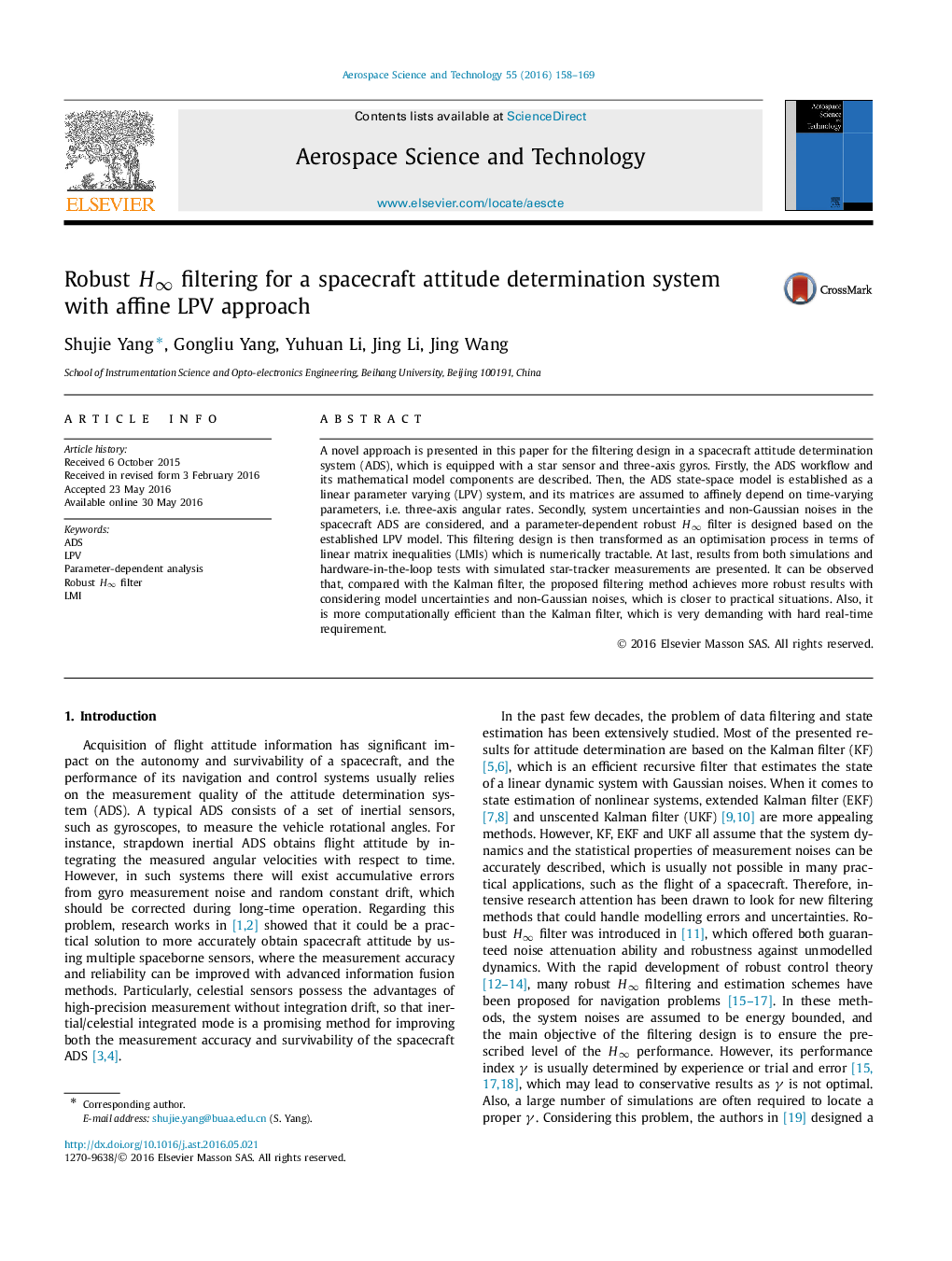| Article ID | Journal | Published Year | Pages | File Type |
|---|---|---|---|---|
| 1717550 | Aerospace Science and Technology | 2016 | 12 Pages |
A novel approach is presented in this paper for the filtering design in a spacecraft attitude determination system (ADS), which is equipped with a star sensor and three-axis gyros. Firstly, the ADS workflow and its mathematical model components are described. Then, the ADS state-space model is established as a linear parameter varying (LPV) system, and its matrices are assumed to affinely depend on time-varying parameters, i.e. three-axis angular rates. Secondly, system uncertainties and non-Gaussian noises in the spacecraft ADS are considered, and a parameter-dependent robust H∞H∞ filter is designed based on the established LPV model. This filtering design is then transformed as an optimisation process in terms of linear matrix inequalities (LMIs) which is numerically tractable. At last, results from both simulations and hardware-in-the-loop tests with simulated star-tracker measurements are presented. It can be observed that, compared with the Kalman filter, the proposed filtering method achieves more robust results with considering model uncertainties and non-Gaussian noises, which is closer to practical situations. Also, it is more computationally efficient than the Kalman filter, which is very demanding with hard real-time requirement.
